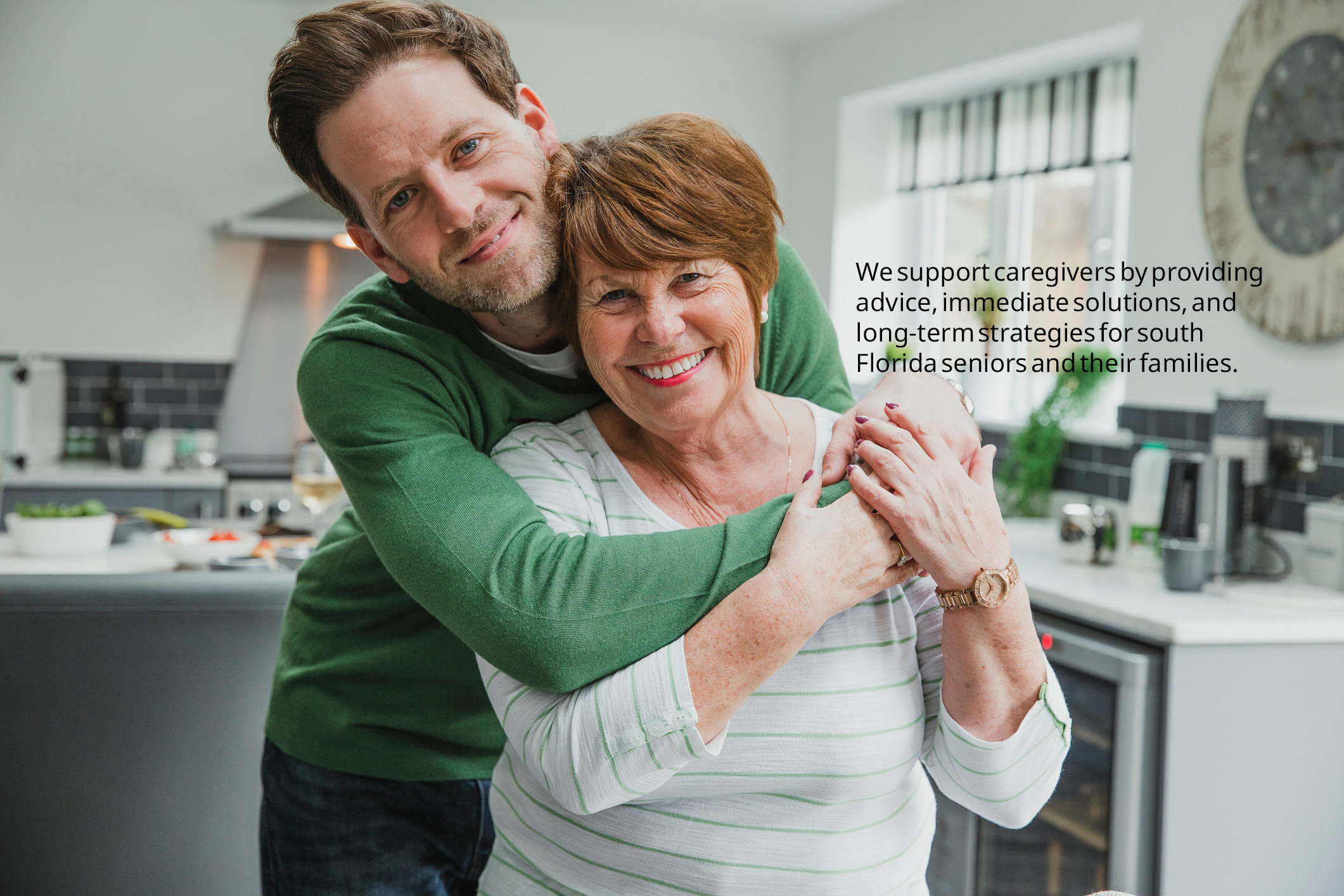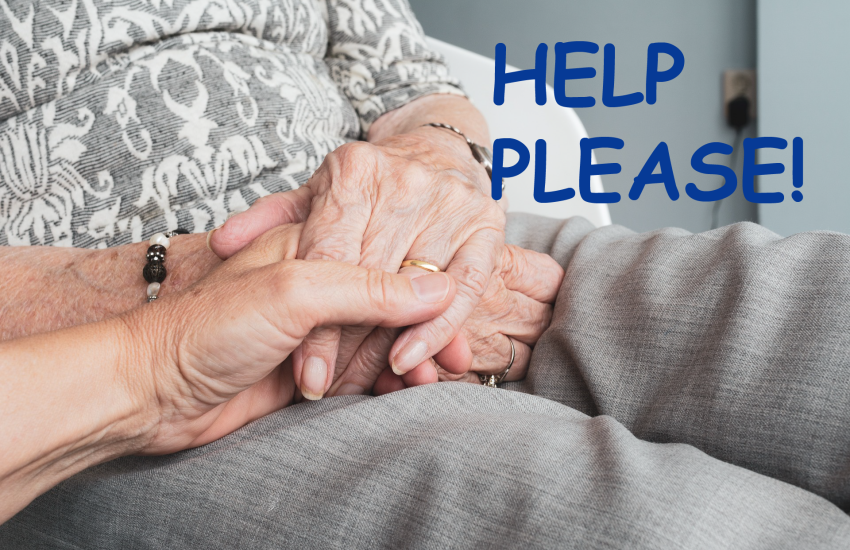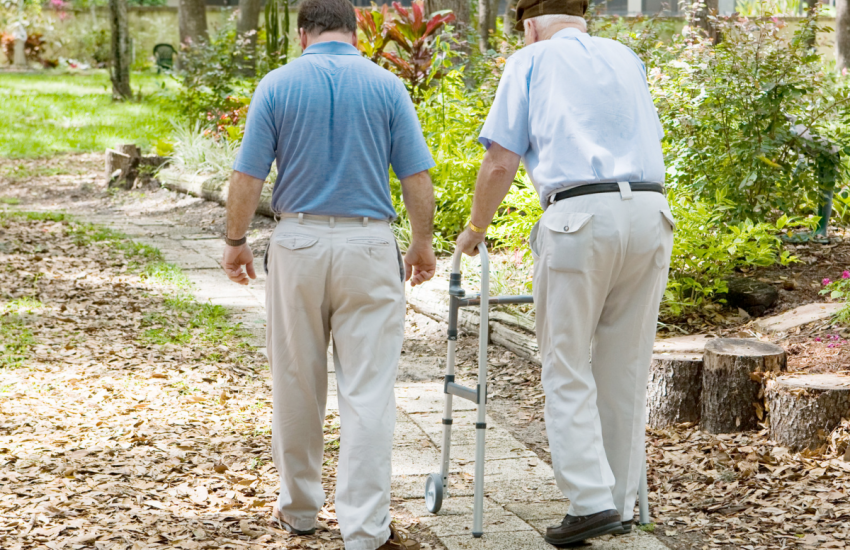Managing anxiety, apathy, and agitation levels in loved ones with dementia can be challenging.
 My mother has advanced Alzheimer's Disease along with several other chronic conditions that require medications. In addition to the eight prescribed medications that she takes every day, she also takes supplements. My father took care of organizing her meds until his own health challenges made that too difficult for him.
My mother has advanced Alzheimer's Disease along with several other chronic conditions that require medications. In addition to the eight prescribed medications that she takes every day, she also takes supplements. My father took care of organizing her meds until his own health challenges made that too difficult for him.
My mother has 24/7 care from terrific aides provided by an agency, but they are not licensed to either set up or give her the medications. So, I have been going over to their home and organizing her meds so that the caregivers can place them in front of her at the appropriate times. It’s been a disaster! Between making sure she takes all of the medications at the right times and making sure she doesn’t run out, it's almost like a full-time job.
Any suggestions? Laura S., Miami FL.
 Managing medications is one of the most challenging, and time-consuming tasks that older adults and their family caregivers face. It is also one of the first of many activities that is compromised when a loved one becomes cognitively impaired. For your particular situation, I recommend two ways to make this process easier for you. First, simplify your mother’s medications to those that really matter and then, once that is completed, set up a medication process that works for your mother.
Managing medications is one of the most challenging, and time-consuming tasks that older adults and their family caregivers face. It is also one of the first of many activities that is compromised when a loved one becomes cognitively impaired. For your particular situation, I recommend two ways to make this process easier for you. First, simplify your mother’s medications to those that really matter and then, once that is completed, set up a medication process that works for your mother.
Because this is such an important issue, with so much to explain, I’ll focus only on the first action to take in this column. For the second step, please visit my blog, where I take a deep dive on this issue and offer suggestions for products and phone APPS that could help.
For ways to simplify your mother’s medications to those that really matter, I contacted Marie Savard, MD for her expert advice. A former ABC News Medical Contributor, Dr. Savard has spent most of her career taking care of elderly patients and is now devoting her time to inspiring others to simplify and manage a loved one’s medications. She has the following step-by-step advice for you and others who find themselves in the same situation;
“First, take an inventory of all the medications and supplements that your mother takes and create a comprehensive list,” said Dr. Savard. The list should include the following information: medication or supplement name, the reason for taking it, the name of the prescribing physician, dosage, the time(s) it should be taken, the color of the pill and the renewal date. Try to determine how often your mother actually takes the medications.”
Then, Dr. Savard suggests reviewing this complete medication/supplement list with her primary care physician, and if at all possible, plan to accompany your mother on this visit;
“Let your mother’s physician know your concern about managing her medications. Be sure to give him or her an update regarding which ones she might not be taking consistently or those whose side effects are worrisome. The goal is for her physician to simplify the list of medications she takes on a daily basis,” said Dr. Savard.
"It’s important to review a medication list on a regular basis with a physician because a patient’s needs change and sometimes the necessary changes in medications don't follow, Dr. Savard explained. “For example, research shows that some dementia-related medications are no longer recommended or effective for those with more advanced disease. Furthermore, taking medications such as statins or aspirin to prevent heart disease may no longer make sense.”
Dr. Savard added that an appointment with your mother’s physician presents an opportunity to ask other questions such as what to do if medication doses get missed and if the pills can be crushed and mixed with food if she has trouble swallowing them. Some of these meds might even be available in liquid form. And then there’s the concern about side effects;
“Medications often have side effects,” Dr. Savard added. “For example, NSAIDS, such as ibuprofen, can lead to stomach irritation and indigestion and too often more medications are prescribed to control these side effects. A complete review of the medication might indicate that it’s best to stop the problem medication rather than add another pill to the list.”
I thank Dr. Savard for her guidance on this very important topic. For more information on this important topic I invite you to view her website, www.askdrmarie.com and follow her blog. In the meantime, I will continue with my response to Laura’s question about creating a sustainable daily routine for medicine management on my blog. I hope you will continue reading there.

My parents are in their mid 80’s. Over the past six months my father has had a series of falls that have landed him in the hospital and he’s unsteady on his feet. They have agreed to have help during the day and my father now wears a falls alert pendant for hours when there is no help.
The problem is they have fired many caregivers after only a few days and for trite reasons; one filled my father’s glass with too much water; another hovered over him or talked too much. He interviewed each one before hiring them and initially thought they were capable and nice. He’s just waiting for the “perfect caregiver.” What can we do? Ellen F., Newton, MA

Your father’s continuing dissatisfaction with his caregivers is not unusual. Having a new person in his private space, even for just a few hours a day, diminishes his privacy and independence so it’s understandable that the transition will take time for him to get used to.
One way to minimize the turmoil that is often felt when initially engaging a caregiver is to carefully discuss the tasks you would like for this person to do. Before interviewing prospective caregivers, work with your parents to create a list of specific tasks that they need help with, such as preparing meals, assistance with bathing, or taking a walk.
Then, think about the attributes of the person you’d like to perform the tasks. Do your parents want a woman or man; someone who is outgoing and talkative or more the quiet type? Should they be able to drive and cook? By having this discussion before interviewing candidates they will be more likely to hire – and retain- someone who is a good fit. If you’re using an a placement agency, be sure to relay this information to them. Remember, the more specific you can be, the better the outcome.
The transition to in-home support, even if not full time, requires a lot of patience by your parents and the caregiver. The first few days or week should be viewed as a time to establish a routine of tasks and to let the caregivers know how they like to be helped and when they like to be alone. Your parents will feel much more in control of the situation and ultimately happier with their caregiver if they take the time to go through this process and communicate their preferences.
Finally, it’s a good idea for your mother or other family member to be present as much as possible during this brief transition period. If you don’t live nearby, I suggest scheduling a visit during this time.

My mother is 85 with early -to-moderate Alzheimer’s disease. Although her physician has told my parents that she absolutely should not drive, she insists on it. My father is not stepping up to help at all. One day he will urge her not to drive but other times, he relents and says it’s ok. Last week she had a minor fender bender and he had no reaction. In fairness to my father, he is 85, works hard to keep her engaged every day and frankly I think he’s just worn out. What can we do? Jackie B., Cherry Hill, NJ

Persuading an elderly parent that it’s time to hang up the car keys is one of the most common and contentious issues that family members must deal with. Just Google the topic and see the thousands of articles offering suggestions that range from hiding the keys to reporting your parents to the DMV. Here’s my take on your situation along with some suggestions that have worked for many of my clients.
First, about your father - as the person on the front lines of a sad and difficult situation, he sounds worn out, and probably lacks the strength to constantly reason and negotiate with your mother. However, while he needs and wants to take the lead, you can still help and guide the process.
I would begin by having a calm discussion with your father, preferably with another family member. Refrain from expressing what you wish he would do. Instead, focus on the facts most relevant to her situation such as; the potential impact of her medications on driving; her confusion when driving in traffic; known dangerous intersections nearby, and issues related to personal liability.
Keep in mind that when your mother does stop driving, your father will have a greater responsibility to be her full-time chauffeur. Therefore, be ready with a solution that will make the transition easier for both of them. I have a few ideas that you can discuss with your father and that your parents can try out together:
- Set up an account on GoGo Grandparent, a service that easily links seniors to Uber and Lyft without the stress that often comes with using APPs. All one has to do is call and press “1” to be picked up at home, or “2” if you want to be picked up where you were last dropped off, and “3” if you have a special request, such as a ride to a doctor’s office, or the store. What I especially like about GO GO Grandparent is that their drivers are trained to help older people and they will ensure that your mother safely arrives at her destination. For more details about this service, here's a link to a blogpost I wrote about them last year.
- Alternatively, there are driving services such as Red Cap that use your own car. While a bit more expensive than GoGo Parent, they may be preferable on nights when you want to pick up your friends for an evening out at a restaurant or theatre. The driver will drop you off and be there when you’re ready to return home. (Why wait until you’re older to enjoy this service?!) There are other companies that do this. Just make sure they are careful when selecting drivers to transport older people and that they are carefully screened.
If your mother can adjust to going places as a passenger with or without your father (perhaps with a friend), then perhaps the next step could be to hire a companion who can take her to do errands or to join her friends for some activities outside of the house. That would free him up to drive for his own enjoyment and that in turn would give him some much-needed relief.

I am 85 years old. My husband died two years ago, after a 65-year marriage. I’m still very sad and lonely, and bored as well. I drive but do not like driving far or at night. My children live nearby and I see them regularly, but they’re very busy with their own children and careers. They’re concerned about me and have suggested that I move into an independent living facility. I’ve visited a few and have no interest. Can you advise me? — Sandy H., Aventura, FL

Thank you for reaching out. Your loss of your husband’s companionship, and perhaps close friends, can make this a sad time of your life.
But your question suggests that you want to do something about it and that is a wonderful place to start. Loneliness is one of the most common issues I hear about directly from seniors as well as from their adult family members who are concerned about them. It can lead to depression and apathy, which in turn can impact the quality of your sleep, consistency of good nutrition and ultimately result in impaired health. But loneliness doesn’t have to be your new set point. If you’re willing to make new connections and keep an open mind, you’ll likely be surprised at how many options you have to choose from.
Here are just a few suggestions:
Volunteering is a great way to meet like-minded individuals. These days, there are organizations such as Volunteermatch.org that help match volunteers to worthwhile causes based on a person’s interest and geography. There’s bound to be an opportunity that will appeal to you whether it’s at a medical facility, library, museum or community non-profit.
Do you have a local community center? At the Pinecrest Community Center in South Miami, for example, I’ve observed first hand just how much is going on in terms of lectures, classes, group walks and even card games for members of all ages. It’s a great opportunity to take up a new interest.
Do you still love to learn? The Bernard Osher Foundation formed the Lifelong Learning Institutes in 2000 and now funds education programs for those 55+ at many Universities throughout the US. Here’s a link to find the closest one to you.
Grab a friend and get tickets to a local theatre production or just go out for a meal. There are car services such as Red Cap that can transport you using your own car. You can even have them do some errands for you while you’re enjoying yourself.
Mealtime can be an especially lonely time. Have you considered hiring a companion a few times a week who can accompany you to do errands, and help you prepare dinner?
Finally, since I received your question via email I’m assuming that you are comfortable using a computer. Perhaps owning a tablet device would help relieve occasional boredom with access to the internet, online games, and the ability to talk to your children and grandchildren via Skype. There are many “apps” for music, television shows and games that you can enjoy wherever you are -- at the kitchen table, outside, or while visiting your grandchildren, who will think you’re one cool grandmother!
There are many local classes and private instructors that can teach you a few tricks of the trade.

My mother is 87 years old and has full blown dementia. She cannot be left alone and requires daily assistance. She is awake a good part of the night and recently she has developed panic attacks. Every time I leave she wants to know if she can come with me. Since I work full time this is usually not an option. She is being well cared for by her caregivers.
I know she can’t control her behavior- and that her lack of sleep doesn’t help. Her doctor suggested melatonin for the sleep, but that did not help. What can I do to keep her calm and keep the panic attacks to minimum? Marla H., Miami, FL

Caring for a loved one with dementia can be very challenging and emotionally draining. As you are learning, the disease is not just about memory loss: It also involves personality changes and impaired reasoning so that independent daily living is severely limited.
To learn about the options available to your mother for her insomnia and anxiety, I contacted Dr. Leslie Kernisan, a geriatrician in the San Francisco Bay area and the physician behind the excellent website, Better Health While Aging. In her email response to my question, she described your mother’s situation as “tricky” to manage;
“There’s no easy and safe way to keep her calm,” she wrote. “Commonly prescribed tranquilizers such as Xanax or Ativan pose risks for older people with dementia as they can increase the chance of a fall and even make patients more confused. They are also habit forming and it can later be very hard to wean people off these types of drugs.”
Dr. Kernisan recommended that you explore non-drug ways to manage your mother’s anxiety;
“Keep her rested, relaxed and as emotionally healthy as possible so that she’ll be less likely to panic when she’s faced with a stressor such as your departure,” she said.
“For example, to help her sleep better, try one of the techniques I write about in depth in this article: How to Manage Sleep Problems in Dementia. These include making sure she gets enough exposure to sunlight and fresh air during the day. Exercise has also been shown to help dementia patients improve their sleep.
“Music therapy or another pleasant activity can help during those times when you have to leave her."
“If you have exhausted non-drug approaches and want to discuss medication options with your mother’s physician, an article I recently wrote about 5 Types of Medication Used to Treat Difficult Dementia Behaviors, should help you understand the benefits and risks. It describes the approach I take when considering medication for behavior problems in dementia. For example, I would first make sure that your mother isn’t experiencing chronic pain or constipation, which can make people with dementia irritable or more reactive.
“With a little effort and creative thinking, it’s often possible to reduce the anxiety and distress of a person with dementia, without resorting to chemical restraints,” Dr. Kernisan said. “Consider them if it seems absolutely necessary, and talk to the doctor about using the very lowest doses possible.”
As a footnote to this column, you may find information on Dr. Kernisan's website very helpful. Her podcasts on Safer Treatments for Insomnia and Drugs for Difficult Dementia Behaviors are well done and well worth the time to listen to.

















